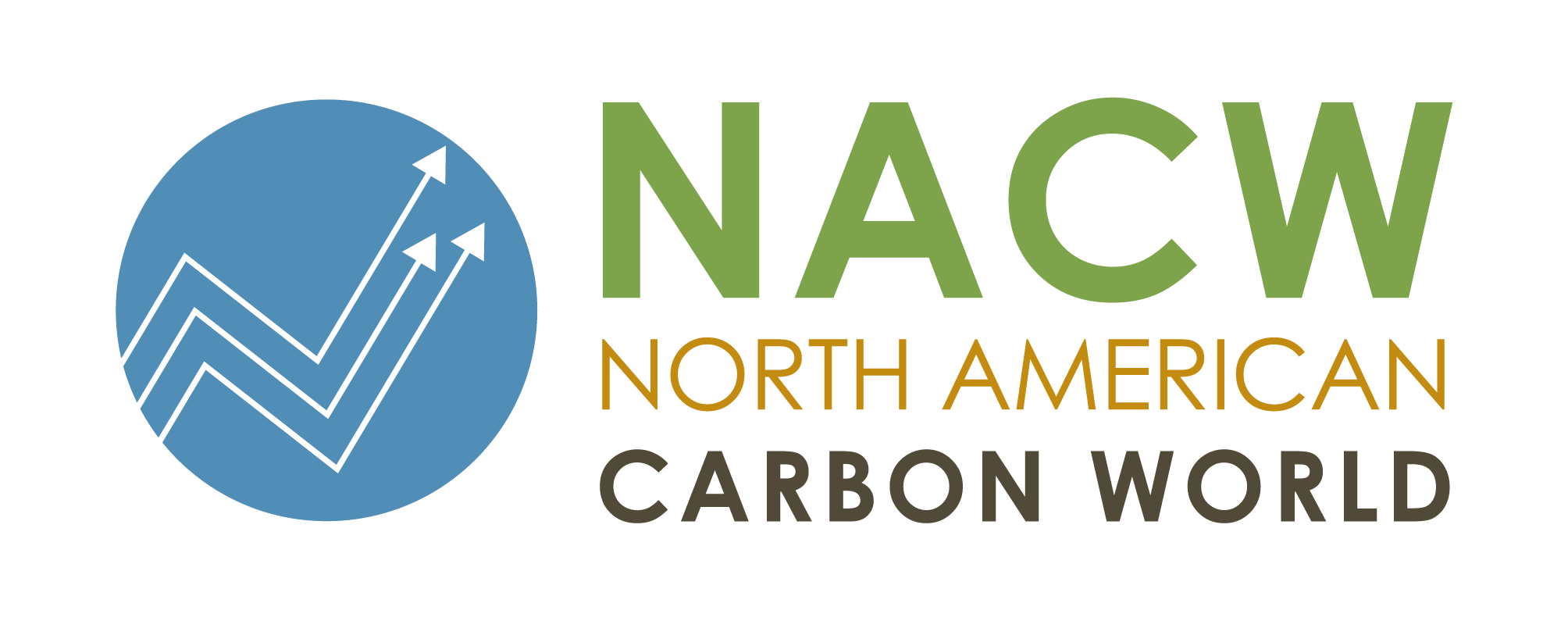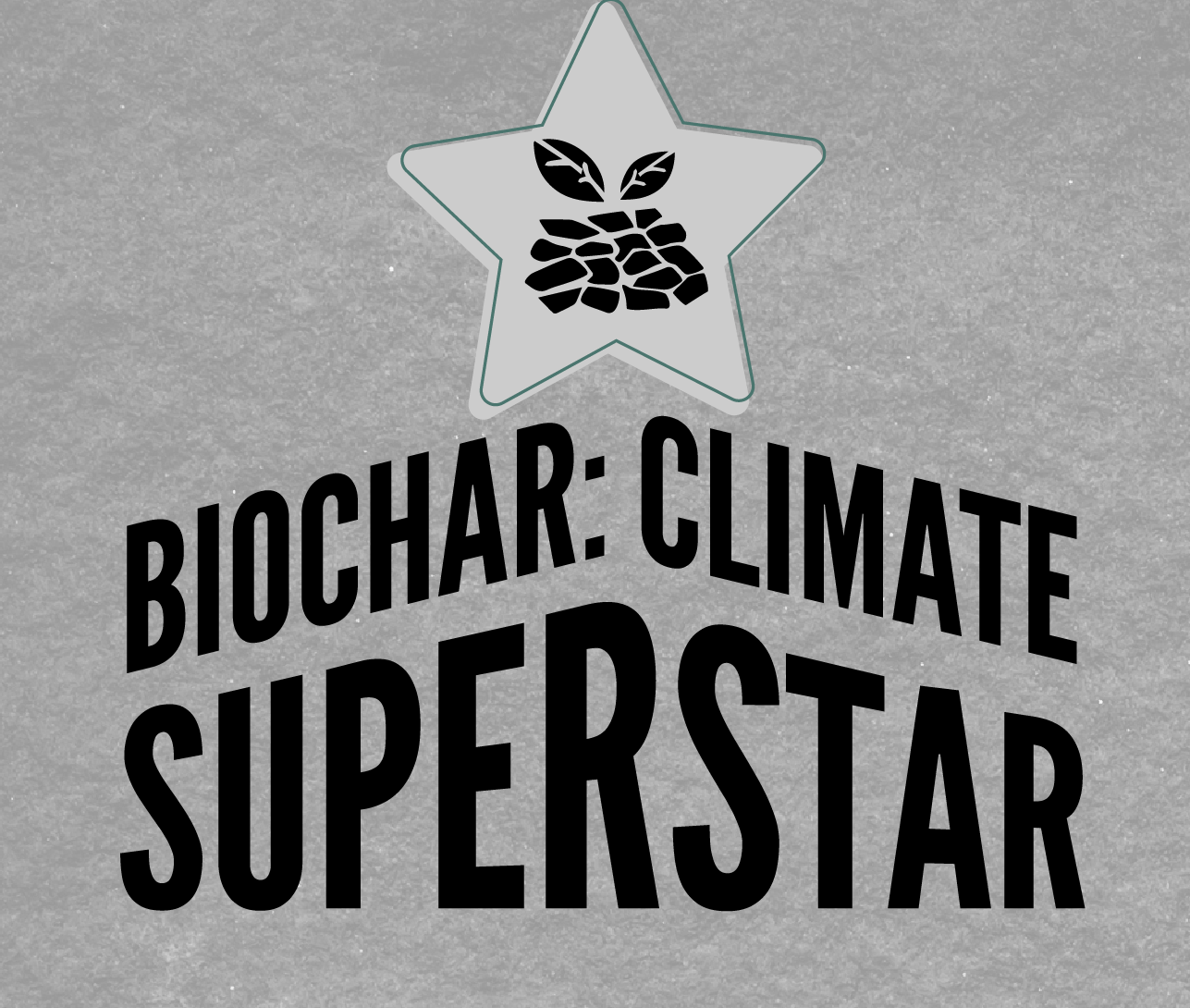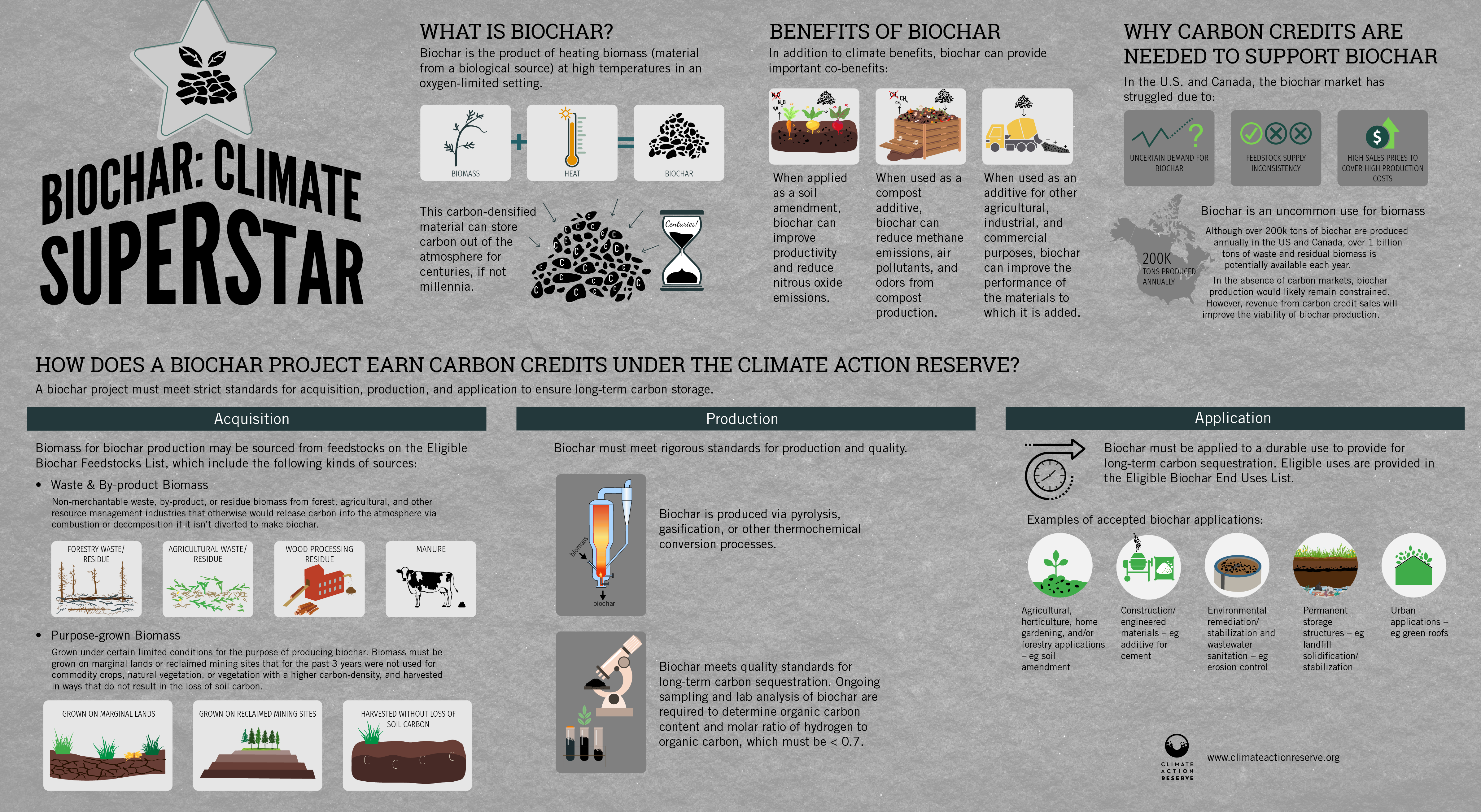The Argentina Livestock Protocol is available for public comment through August 22, 2024. We will hold a public webinar to discuss the protocol in detail and solicit public comments on August 8.
Join us Tuesday, August 13 for a webinar on Empowering Climate Action through Biochar: Insights into the U.S. and Canada Biochar Protocol V1.0
Integrity Council Governing Board approves three Climate Action Reserve protocols as high-integrity
The approval of the first project categories ushers in the first CCP-tagged credits for the global VCM
LOS ANGELES, CA – The Governing Board of the Integrity Council for the Voluntary Carbon Market (Integrity Council) approved three Climate Action Reserve protocols as meeting its high-integrity Core Carbon Principles (CCP). This marks the first approvals of VCM methodologies and protocols by the Integrity Council, and the highly anticipated development means credits issued under the approved protocols will be tagged with the CCP label.
“With the Integrity Council’s announcement of the first approved protocol and methodology categories, congratulations are due to everyone who has supported the Integrity Council’s work, everyone whose collaboration helped get us to this point and everyone who has been waiting for market guidance to elevate the global VCM and its potential. There is now real-world guidance that can be applied to the real market, and market participants and others can see actual credits that are CCP-approved. This is a tremendous development for the VCM, and this is just the tip of the iceberg in terms of CCP-approved credits,” said Linda Adams, Chair of the Climate Action Reserve Board of Directors.
The three Reserve protocols approved were the US Landfill Protocol Version 6, US Ozone Depleting Substances (ODS) Protocol Versions 1-2 and Article 5 ODS Protocol Versions 1-2. The approval of these protocols provides additional validation on the quality and integrity of the Reserve’s protocols and their development process, which is public and transparent, draws from the expertise and knowledge of many expert workgroup members from various backgrounds, involves public comment and response and requires final approval by the Reserve Board of Directors in a public meeting.
“Establishing a globally respected and utilized benchmark for high integrity in the VCM is a herculean task, but the task also presents a herculean opportunity. All eyes, including those of the US Federal government, have been on the Integrity Council and how it will tackle this task,” said Craig Ebert, President of the Climate Action Reserve. “The Integrity Council has tackled the challenge head on, and with the first CCP-approved credits now available, we expect to find ourselves swiftly traveling towards a market with more consistent transparency, quality and rigor, which in turn will stimulate more supportive policy and financial investment to address the climate crisis. We expect this decision to be the first of many recognizing the high quality of the work conducted by the Climate Action Reserve.”
Approval of the protocols follows on the heels of the Reserve’s recognition by the Integrity Council as being a CCP-eligible program in April. This recognition signifies the Reserve has met the Integrity Council’s rules on robust quantification of emission reduction and removals, no double counting and sustainable benefits and safeguards.
The Climate Action Reserve is the most trusted, efficient, and experienced offset registry for global carbon markets. A pioneer in carbon accounting, the Reserve promotes and fosters the reduction of greenhouse gas (GHG) emissions through credible market-based policies and solutions. As a high-quality offset registry for voluntary carbon markets, it establishes rigorous standards involving multi-sector stakeholder workgroup development and local engagement and issues carbon credits in a transparent and publicly available system. The organization also supports compliance carbon markets in California, Washington and internationally. The Reserve is an environmental nonprofit organization headquartered in Los Angeles, California with staff members located around the world. For more information, please visit www.climateactionreserve.org.
The Climate Action Reserve is an equal opportunity provider.
###
Climate Action Offsetter: Road Scholar
![]()
What is your organization’s mission?
At not-for-profit Road Scholar, our mission is to inspire adults to learn, discover and travel. Our learning adventures engage expert instructors, provide extraordinary access, and stimulate discourse and friendship among people for whom learning is the journey of a lifetime.

What are the key principles and goals of your sustainability program?
As stewards of our planet, we are acutely aware of the urgent realities of climate change and its profound impact on the places we hold dear. At Road Scholar, safeguarding our global classroom for future generations is paramount. That’s why we’re charting a course toward sustainability that is guided by several key principles: reduce our impact where we can; prioritize partners who care about the environment; and promote environmental stewardship, social responsibility and economic sustainability on our programs.
How did you choose the right offset projects for your company?
We aspired to create a diverse portfolio of projects to fund, both geographically and by the types of projects, which include rainforest preservation in Brazil, methane gas recapture in Florida, wind energy in India, forest preservation in Alaska and more.
 How has utilizing offsets benefited your organization / your clients / your community?
How has utilizing offsets benefited your organization / your clients / your community?
In surveys to our participants, they have noted climate change is their top concern, so knowing Road Scholar is doing what it can to protect the environment is important to them.
What’s next for your organization’s climate and environmental goals?
While we have taken strides to offset the carbon footprint of our air travel in recent years (and will continue to do that), we are deepening our commitment to protecting the environment and will ingrain these values into our organizational culture. From reducing waste to forging partnerships with eco-conscious partners, our goal for the future is to integrate sustainable practices into every aspect of what we do. Our team is working to minimize our environmental footprint – whether it’s a reduction in single-use plastics or an emphasis on locally sourced cuisine. But our journey extends beyond environmental initiatives; it encompasses the social wellbeing of the communities we visit as well. By placing equal importance on people and planet, we maximize our impact, ensuring no one is left behind.

How do you incorporate sustainability into your programs?
We do offer some learning adventures with sustainability education built into the itinerary, like our Costa Rica program that that visits an agronomic research and education centers for an expert-led botanical garden exploration, and our Florida kayaking program where participants meet an expert lecturer-biologist-ecologist for a lecture on aquifer sustainability followed by a hike of a state preserve that plays an important role in supporting ecosystem and watershed health. And we are working on developing more programs that support continued education in agriculture, conservation, natural resources, and living sustainably – including offsetting travelers’ emissions.
Newly adopted U.S. and Canada Biochar Protocol provides avenue for high-quality carbon credits from natural climate solutions
The protocol supports emission reductions and carbon removals associated with the production and application of biochar in the U.S. and Canada
LOS ANGELES, CA – At its March 2024 Board meeting, the Climate Action Reserve Board of Directors adopted the U.S. and Canada Biochar Protocol. The protocol provides guidance on how to quantify, monitor, report, and verify climate benefits from the production and use of biochar, which is capable of locking up carbon and keeping it from re-entering the atmosphere for centuries.
“The climate benefits of the U.S. and Canada Biochar Protocol are invaluable,” said Linda Adams, Chair of the Climate Action Reserve Board of Directors. “By removing carbon out of the atmosphere for centuries, if not millennia, biochar is a key resource in the fight against climate change. The Reserve’s protocol will help advance the production and use of biochar, allowing for greater investment and innovation in biochar as a climate solution and bringing new communities and partners into the realm of the highest-quality carbon offsets in the carbon markets.”
Biochar production provides an opportunity for the productive use of a variety of feedstocks that are otherwise considered waste biomass, including non-merchantable residues from timber harvests and fuel thinnings. The U.S. and Canada Biochar Protocol provides a new avenue for high-quality credits from natural climate solutions in the global voluntary carbon market (VCM) and expands the opportunity for participation in carbon markets to new sectors.
The protocol credits activities related to the diversion of biomass from business as usual uses, its conversion into biochar, and its application to a durable use that results in the long-term storage of carbon. In addition to direct carbon sequestration benefits, biochar has a growing list of potential co-benefits and ancillary greenhouse gas benefits, including as a soil amendment for improved productivity on agricultural sites, reduced nitrous oxide when applied to soils, or reduced methane emissions from enteric fermentation when used as a livestock feed additive, though the protocol only currently credits for the carbon directly sequestered in biochar.
“Not only is biochar a very efficient carbon sink for our global climate, but it also provides important co-benefits, such as improved ecosystems, water quality, soil quality, health benefits and economic opportunity,” said Craig Ebert, President of the Climate Action Reserve. “By supporting biochar projects in the U.S. and Canada, our new protocol will demonstrate the power of high-quality carbon programs to mobilize capital for climate projects, engage communities, and achieve significant global GHG reductions.”
The Reserve’s Biochar Protocol includes key features that differentiate it in the carbon market and ensures efficiency and biochar quality over time. The protocol employs a limited geography to foster efficiencies in project development and verification; expanded opportunities for forest-based biomass, including from federally owned lands; ongoing analysis of project biochar quality over time that provides assurances around credit quantification; and quantification tools developed by the Reserve to support project management and credit quantification.
The protocol was developed through the Reserve’s signature transparent, multi-stakeholder, and public process involving an expert workgroup comprised of members with diverse perspectives and areas of expertise, engagement with local communities, public comment and response, and public posting of all protocol development meetings and materials. Protocol development was supported in part by funding from the USDA Forest Service Wood Innovation Program and the California Department of Forestry and Fire (CAL FIRE) Forest Health Program.
To learn more about the protocol, please visit: www.climateactionreserve.org/how/protocols/ncs/biochar/
The Climate Action Reserve is the most trusted, efficient, and experienced offset registry for global carbon markets. A pioneer in carbon accounting, the Reserve promotes and fosters the reduction of greenhouse gas (GHG) emissions through credible market-based policies and solutions. As a high-quality offset registry for voluntary carbon markets, it establishes rigorous standards involving multi-sector stakeholder workgroup development and local engagement and issues carbon credits in a transparent and publicly available system. The organization also
supports compliance carbon markets in California, Washington and internationally. The Reserve is an environmental nonprofit organization operating virtually with staff located around the world with a support office in Los Angeles, California. For more information, please visit www.climateactionreserve.org. The Climate Action Reserve is an equal opportunity provider.
###
From protocol adoptions to speaking engagements, the Reserve had a busy and productive 2023! Check out the highlights of the year in our 2023 annual report.
The Climate Action Reserve’s program is now CCP-eligible, recognizing the high integrity and transparency that have been pillars since the program’s launch
The leading global registry is honored to continue supporting high quality in the VCM and ICVCM’s critical work
LOS ANGELES, CA – The Climate Action Reserve has been approved as a CCP-eligible program by the ICVCM Governing Board, meaning it has met the CCP (Core Carbon Principle) criteria for effective governance, transparency, tracking and robust, independent third-party validation and verification. The approval marks a milestone development for the voluntary carbon market (VCM) and is a crucial step for the market to collectively move towards consistent standards for high quality.
“We applaud the Integrity Council and all experts who have been involved with getting our community to this important point. The CCPs and the broad support in their development and use will establish levels of trust, high quality, transparency and confidence that are needed to maximize the full potential of the VCM in addressing climate change,” said Linda Adams, Chair of the Climate Action Reserve Board of Directors.
The CCP eligibility also means the Integrity Council recognizes the Reserve program as meeting rules on robust quantification of emission reduction and removals, no double counting and sustainable benefits and safeguards.
As a CCP-eligible registry, the Reserve will be able to use the CCP label on credits issued under CCP-approved methodologies. The Integrity Council currently is assessing over 100 methodologies, including Reserve protocols, and has advised announcements on the first approved methodologies are expected in April and May.
“The Climate Action Reserve continues to be fully supportive of collaborative actions from our global community to ensure integrity and high quality in the VCM and encourage growth of the market and voluntary climate action. All of these are imperative and reflective of the Reserve’s work since our founding,” said Craig Ebert, President of the Climate Action Reserve. “While working through the Integrity Council’s comprehensive process for determining eligibility under the Core Carbon Principles (CCPs), we have been appreciative of the focus on effective governance, transparency, tracking and robust third-party verification. We are honored to be recognized as meeting those standards by being approved as CCP-eligible, and we remain committed to working with members of the VCM community to continue down this important path of growing a high integrity, high quality market. It is absolutely necessary to unleash the potential of the VCM if the global community is serious about addressing the climate crisis.”
The Reserve’s final Decision from the Integrity Council Governing Board can be found here.
The Climate Action Reserve is the most trusted, efficient, and experienced offset registry for global carbon markets. A pioneer in carbon accounting, the Reserve promotes and fosters the reduction of greenhouse gas (GHG) emissions through credible market-based policies and solutions. As a high-quality offset registry for voluntary carbon markets, it establishes rigorous standards involving multi-sector stakeholder workgroup development and local engagement and issues carbon credits in a transparent and publicly available system. The organization also supports compliance carbon markets in California, Washington and internationally. The Reserve is an environmental nonprofit organization headquartered in Los Angeles, California with staff members located around the world. For more information, please visit www.climateactionreserve.org.
The Climate Action Reserve is an equal opportunity provider.
###






